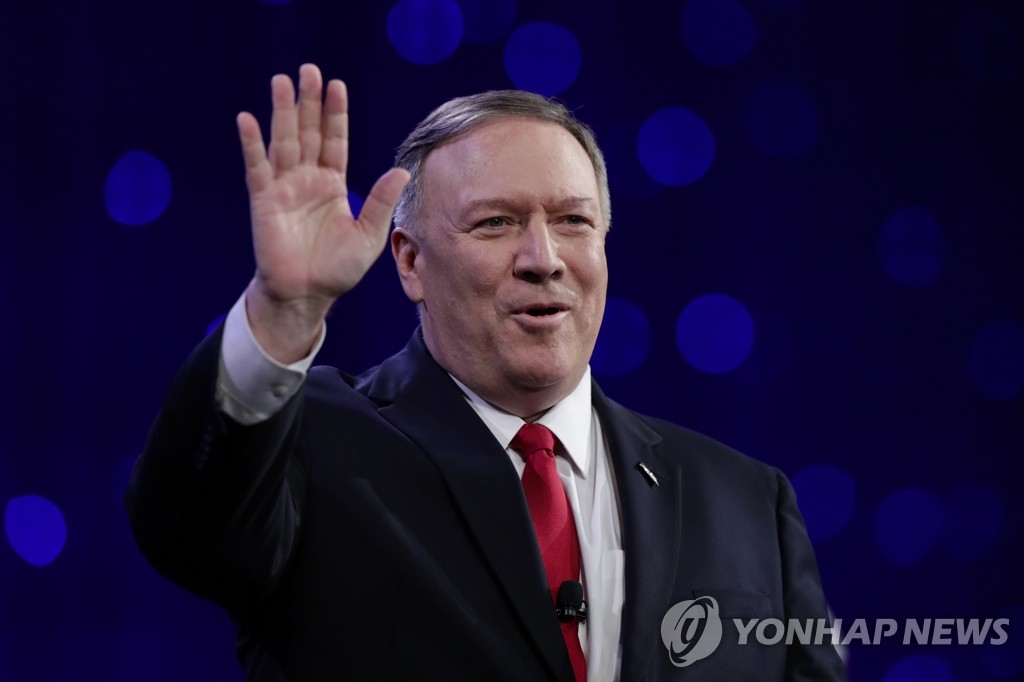- California Assembly OKs highest minimum wage in nation
- S. Korea unveils first graphic cigarette warnings
- US joins with South Korea, Japan in bid to deter North Korea
- LPGA golfer Chun In-gee finally back in action
- S. Korea won’t be top seed in final World Cup qualification round
- US men’s soccer misses 2nd straight Olympics
- US back on track in qualifying with 4-0 win over Guatemala
- High-intensity workout injuries spawn cottage industry
- CDC expands range of Zika mosquitoes into parts of Northeast
- Who knew? ‘The Walking Dead’ is helping families connect
U.S. underscores commitment to Indo-Pacific region in new report
- The U.S. State Department on Monday published a new report underscoring the Trump administration’s commitment to strengthening ties with countries in the Indo-Pacific region.
The report’s release coincided with an announcement by ASEAN, a 10-member bloc of Southeast Asian nations, and its dialogue partners — South Korea, China, Japan, Australia and New Zealand — that they have reached a deal on a mega trade pact, known as the Regional Comprehensive Economic Partnership.
The China-led RCEP is seen as a complicating factor for the Trump administration’s Indo-Pacific strategy, which aims to counter Beijing’s military and economic rise in the region.
Asked to comment on the trade deal, a State Department spokesperson said the U.S. is not party to the RCEP negotiations and it would be premature to comment on text it has not seen.
The spokesperson told Yonhap News Agency, however, that the U.S. is “committed to promoting free, fair and reciprocal trade with the Indo-Pacific by opening markets, removing unfair trade practices, and obtaining fairer treatment for American businesses and workers.”
In the report titled “A Free and Open Indo-Pacific: Advancing a Shared Vision,” Secretary of State Mike Pompeo noted that President Donald Trump has made U.S. engagement in the Indo-Pacific region a “top priority” of his administration.

This AP file photo shows U.S. Secretary of State Mike Pompeo. (Yonhap)
He added: “As President Trump said in November 2017: ‘We have been friends, partners, and allies in
the Indo-Pacific for a long, long time, and we will be friends, partners, and allies for a long time to come.’”
The 30-page report noted the strides made in the South Korea-U.S. relationship, as well as the region’s efforts to enforce sanctions against North Korea.
“The United States is strengthening and deepening partnerships with countries that share our values,” it said. “Our
alliances with Australia, Japan, the Republic of Korea (South Korea), the Philippines, and Thailand have helped sustain peace and security for generations.”
It said the U.S. Indo-Pacific vision aligns closely with South Korea’s New Southern Policy, which aims to improve strategic relations mainly with Southeast Asian nations and provide local companies with more opportunities to launch businesses in the region.
The report also outlined South Korea-U.S. cooperation on expanding development aid and governance and law enforcement programming in the region, as well as on ensuring an open and secure internet free from foreign influence.
Citing cyber threats as among the most urgent transnational threats, the document said the U.S. is increasing support to its Indo-Pacific partners to defend their networks and counter “malicious cyber activities by” North Korea, China, Russia and other actors.
“The United States coordinates with like-minded partners such as Australia, India, Japan, and the Republic of Korea to build cyber capacity in the region,” it said.
A section of the report detailed the U.S.’s efforts to enforce sanctions designed to compel North Korea to give up its nuclear weapons program.
“The United States also works with partners on preventing the spread of nuclear weapons and other dangerous
materials,” it said. “Together, we counter DPRK proliferation activities, enforce United States and U.N. Security Council sanctions, build strategic trade control frameworks, educate industry on their compliance obligations, and
strengthen the enforcement at key land, maritime, and air ports of entry.”
DPRK stands for North Korea’s official name, the Democratic People’s Republic of Korea.
“We build capacity and raise awareness on proliferation activities with governments, shipping companies, shipboard personnel, and facility personnel to ensure the safe and secure flow of legitimate international trade,” the report said.
Meanwhile, South Korea-U.S. cooperation in the economic sector has produced a bilateral framework to strengthen capital markets, as well as a revised bilateral free trade agreement aiming to “protect jobs in America’s auto industry, increase U.S. exports, and eliminate burdensome regulations,” the report said.











